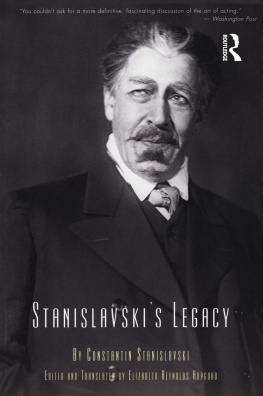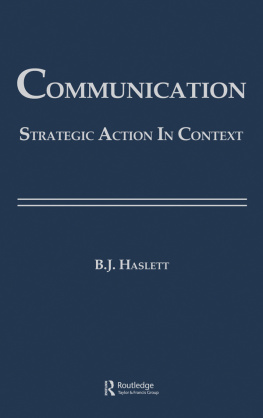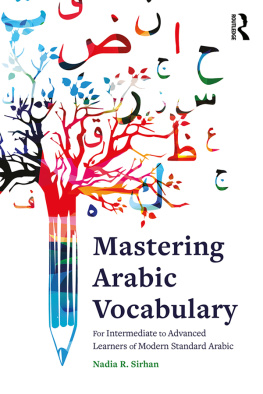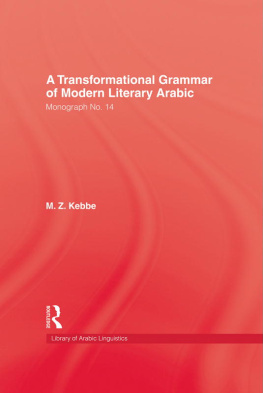Library of Arabic Linguistics
The reasons behind the establishment of this Series on Arabic linguistics are manifold.
First: Arabic linguistics is developing into an increasingly interesting and important subject within the broad field of modern linguistic studies. The subject is now fully recognised in the Universities of the Arabic speaking world and in international linguistic circles, as a subject of great theoretical and descriptive interest and importance.
Second: Arabic linguistics is reaching a mature stage in its development benefiting both from early Arabic linguistic scholarship and modern techniques of general linguistics and related disciplines.
Third: The scope of this discipline is wide and varied, covering diverse areas such as Arabic phonetics, phonology and grammar, Arabic psycho- linguistics, Arabic dialectology, Arabic lexicography and lexicology, Arabic sociolinguistics, the teaching and learning of Arabic as a first, second, or foreign language, communications, semiotics, terminology, translation, machine translation, Arabic computational linguistics, history of Arabic linguistics, etc.
Viewed against this background, Arabic linguists may be defined as: the scientific investigation and study of the Arabic language in all its aspects. This embraces the descriptive, comparative and historical aspects of the language. It also concerns itself with the classical form as well as the Modern and contemporary standard forms and their dialects. Moreover, it attempts to study the language in the appropriate regional, social and cultural settings.
It is hoped that the Series will devote itself to all issues of Arabic linguistics in all its manifestations on both the theoretical and applied levels. The results of these studies will also be of use in the field of linguistics in general, as well as related subjects.
Although a number of works have appeared independently or within series, yet there is no platform designed specifically for this subject. This Series is being started to fill this gap in the linguistic field. It will be devoted to Monographs written in either English or Arabic, or both, for the benefit of wider circles of readership.
All these reasons justify the establishment of a new forum which is devoted to all areas of Arabic linguistic studies. It is also hoped that this Series will be of interest not only to students and researchers in Arabic linguistics but also to students and scholars of other disciplines who are looking for information of theoretical, practical or pragmatic interest.
The Series Editors
A linguistic study of the development of scientific vocabulary in Standard Arabic
Series editors
Muhammad Hasan Bakalla
King Saud University, Riyadh, Kingdom of Saudi Arabia
Bruce Ingham
School of Oriental and African Studies, University of London
Advisory editorial board
Peter F. Abboud University of Texas at Austin
M.H. Abdulaziz University of Nairobi
Yousif El-Khalifa Abu Bakr University of Khartoum
Salih J. Altoma Indiana University
Arne Ambros University of Vienna
El Said M. Badawi American University in Cairo
Michael G. Carter University of Sydney
Ahmad al-Dhubaib King Saud University (formerly University of Riyadh)
Martin Forstner Johannes Gutenberg University at Mainz
Otto Jastrow University of Erlangen-Niirnberg
Raja T. Nasr University College of Beirut
C.H.M. Versteegh Catholic University at Nijmegen
Bougslaw R. Zagorski University of Warsaw
First published in 1987 by
Kegan Paul International
Published 2014 by Routledge
2 Park Square, Milton Park, Abingdon, Oxon OX14 4RN
Simultaneously published in the USA and Canada
by Routledge
711 Third Avenue, New York, NY, 10017, USA
Routledge is an imprint of the Taylor & Francis Group, an informa business
Abdul Sahib Mehdi Ali 1987
All rights reserved. No part of this book may be reprinted or reproduced or utilised in any form or by any electronic, mechanical, or other means, now known or hereafter invented, including photocopying and recording, or in any information storage or retrieval system, without permission in writing from the publishers.
British Library Cataloguing in Publication Data
A catalogue record for this book is available from the British Library
ISBN 13: 978-0-710-30023-2 (hbk)
Publishers Note
The publisher has gone to great lengths to ensure the quality of this reprint but points out that some imperfections in the original copies may be apparent. The publisher has made every effort to contact original copyright holders and would welcome correspondence from those they have been unable to trace.
To the soul of my father who was my constant inspiration in seeking knowledge and appreciating it; and to my family, whose unfailing support has been invaluable to me.
Editors note
The subject of this book is one dear to the heart of Arab scholars, but which may raise matters completely unfamiliar to English readers coming from a linguistic background characterized by a somewhat laissez-faire towards the adoption of foreign vocabulary. English is a hybrid language, basically Germanic, with a 900 year history of absorption of Romance vocabulary, first through Norman French and then as a result of scholarly borrowings and neologisms from Latin. It contains an immense proportion of foreign vocabulary regarded, completely without embarrassment, as English. Arabic, on the other hand, is in a completely different situation. It can, of course, no more claim to be totally homogenous in its vocabulary than any other language can. Nevertheless, the overwhelming proportion of its core vocabulary is native or else the result of loans of such antiquity as to be indistinguishable from native vocabulary.
The various colloquial dialects have, it is true, absorbed foreign vocabulary from the foreign cultures (both western and eastern) with which they have been in contact. However, the scholarly establishment of the Arab world has always resisted the absorption of this into the written language. With the recent technological and educational developments which have taken place in the Arab world, a need has arisen for the transfer of technical concepts into Arabic in many fields. Some scholars have felt that the only acceptable method for this is to extend the meanings of existing Arabic words or to coin new words through the process of derivation from existing roots. This technique is known as Qiyas - derivation by analogical formation. Others have been inclined to absorb foreign vocabulary, but modify this to fit Arabic phonological and, if possible, morphological patterns. This is known as Tarib Arabization.
The Arabs are justly proud of the richness of their vocabulary and the great number of synonyms and words expressing minute differences of meaning for a basic lexical concept. The proponents of the technique of








